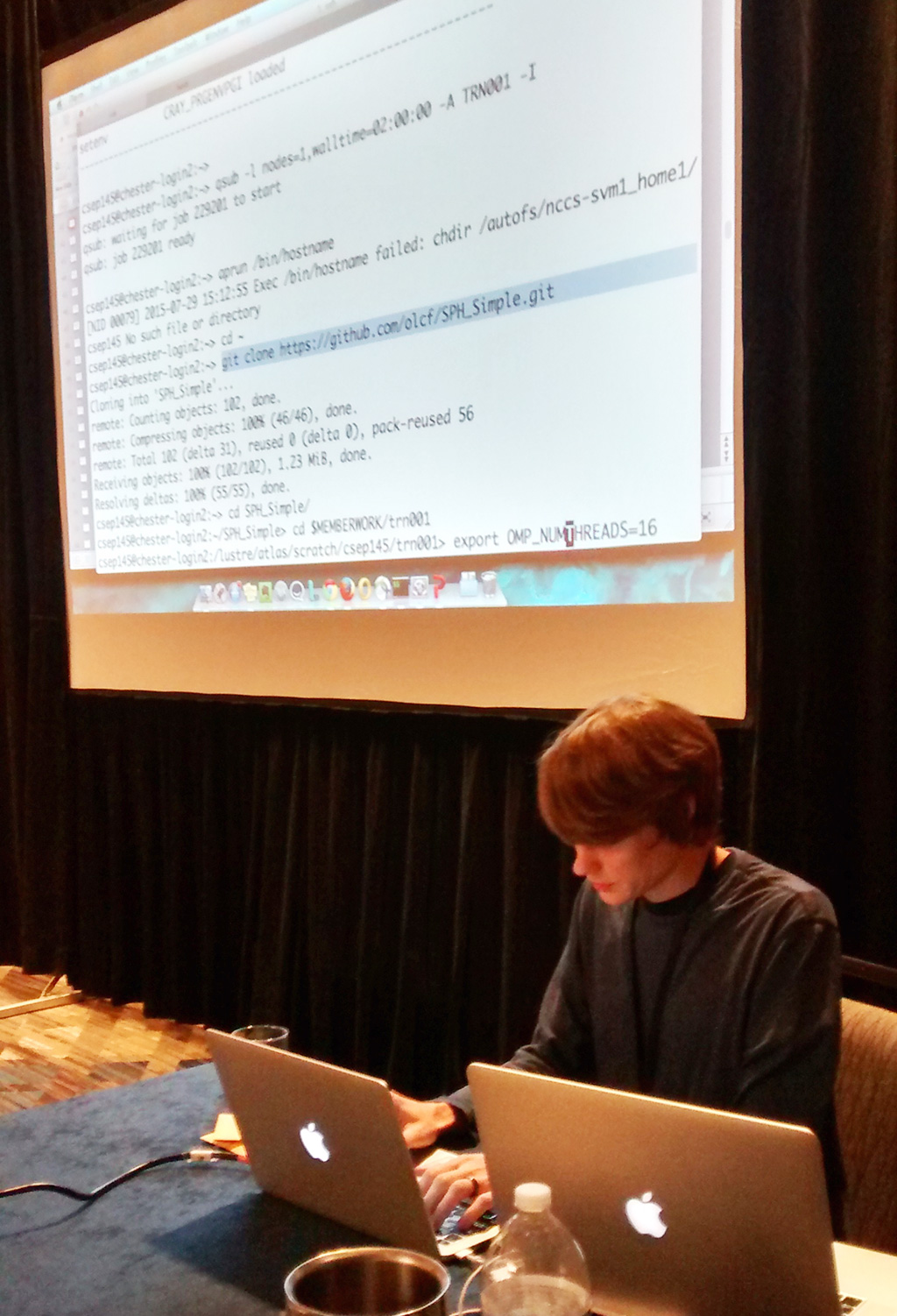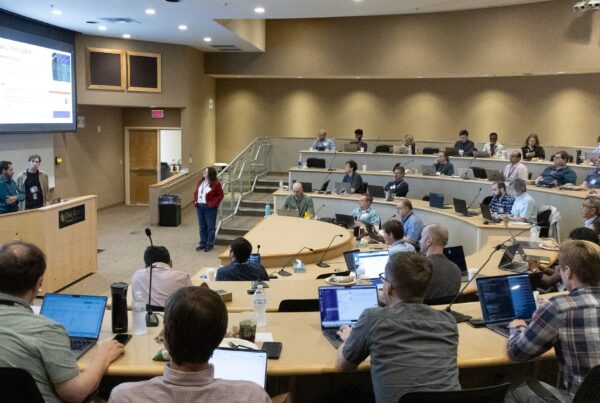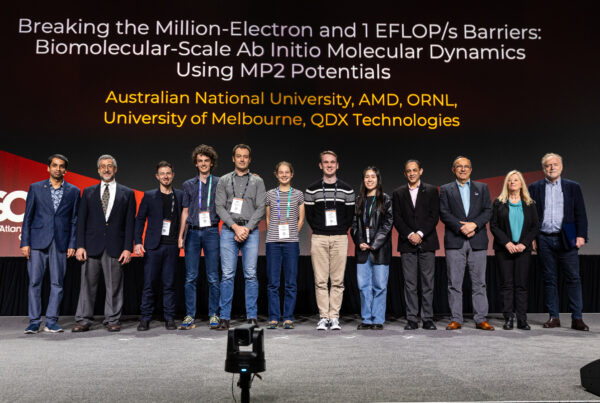
OLCF HPC User Support Specialist Adam Simpson co-led a session, with colleague Verónica G. VergaraLarrea, titled Supercomputing in a Nutshell at the DOE CSGF Annual Program.
Oak Ridgers lead multiple sessions at meeting
Again this year, representatives from the Oak Ridge Leadership Computing Facility (OLCF), a US Department of Energy (DOE) Office of Science User Facility, held prominent roles at DOE’s annual Computational Science Graduate Fellowship (CSGF) Program Review July 27–30 in Arlington, Virginia.
The OLCF’s Judith Hill, a former CSGF fellow, served as one of three presenters during the Introductory High-Performance Computing (HPC) Session, which is required for incoming and first-year fellows.
“On the introductory day, representatives from the three DOE Office of Science computational facilities provided an overview of the modern history of HPC, what application developers should be considering now and in the future, and tips and tricks for using supercomputers,” Hill said. “These sessions provide the new fellows, especially those that may never have been exposed to supercomputing, with a broad perspective on the challenges, past and present, of using these resources.”
Meanwhile, on the third day of the meeting, OLCF HPC user support specialists Adam Simpson and Veronica G. Vergara Larrea co-led a Track I, hands-on HPC session titled “Supercomputing in a Nutshell.”
The session, designed for incoming and first-year fellows, covered supercomputing basics, Vergara Larrea said. Topics included system access procedures, different components involved and their purposes, methods for compiling and running parallel code via the batch system, and general best practices. The 2-hour session also included an introduction to OpenACC and a tutorial on how to maximize use of GPUs on the OLCF supercomputer Titan, Simpson added.
“We were excited to have the opportunity to be part of this workshop,” Vergara Larrea said. “This is the first time that a hands-on component was included in the HPC workshop, and we felt it was a very useful addition to the program.”
CSGF awards 4-year fellowships to doctoral students in science and engineering fields that use HPC to solve complex problems. More than 340 students at 60 US universities have participated in the program. In addition to a yearly stipend of $36,000 and full tuition and fees, fellowship recipients complete a summer practicum at one of 21 DOE national laboratories and sites.
Specific fellowship objectives, according to the CSGF website, are the following:
- To help ensure a supply of scientists and engineers trained to meet workforce needs, including DOE’s, in computational science.
- To make DOE laboratories available to fellows for work experiences, ensuring cross-disciplinary collaborations in productive work teams.
- To strengthen ties between the national academic community and DOE laboratories so the fellowship’s multidisciplinary nature builds the national scientific community.
- To make computational science careers more visible, encouraging talented students to enter the field, thereby building the next generation of computational science leaders.
Oak Ridge National Laboratory is supported by the US Department of Energy’s Office of Science. The single largest supporter of basic research in the physical sciences in the United States, the Office of Science is working to address some of the most pressing challenges of our time. For more information, please visit science.energy.gov.





